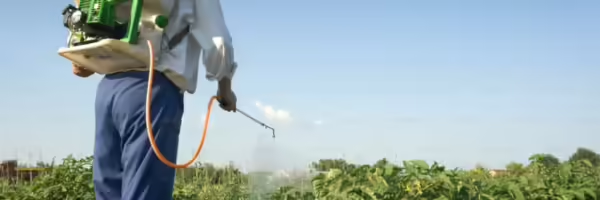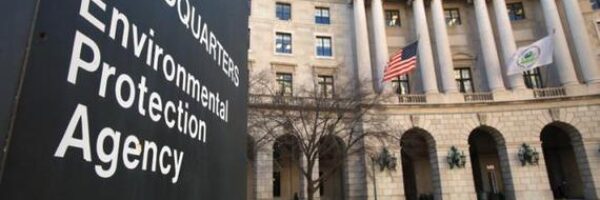
Battles brew over radioactive wastewater discharge from shuttered nuclear plants
By Dana Drugmand
An effort by New York to ban radioactive waste from polluting the Hudson River has embroiled the state in a bitter legal battle emblematic of challenges facing communities across the country as they wrestle with what to do with the waste from shuttered nuclear power plants.

“Taking on Big Oil”; Vermont enacts Climate Superfund Act
By Dana Drugmand
Vermont has enacted a first-in-the-nation law that holds major fossil fuel companies financially responsible for the climate pollution associated with their products, a move applauded by environmental advocates.

Paraquat ban stays alive, advances in California
By Carey Gillam
A proposal to ban the weed killing chemical paraquat cleared the California State Assembly last week and now faces a fight in the State Senate over what would be the first such ban in the country.

Postcard from California: Are corporate “climate offsets” just greenwashing?
By Bill Walker
Apple touts the newest model of the Apple Watch as its first “carbon neutral” product – made with “100% clean energy” and “recycled and renewable materials” and shipped by “lower-carbon modes” instead of by air. But a close look at the watch’s environmental specs shows that reducing emissions of greenhouse gases in its manufacturing and supply chain only goes so far.

US regulator accused of “egregious” misconduct in PFAS testing of pesticides
By Carey Gillam
Documents obtained from the US Environmental Protection Agency (EPA) indicate the agency may have presented false information to the public about testing for harmful contaminants in pesticides, according to allegations being made by a watchdog group and a former EPA research fellow.

Norfolk Southern agrees to $310 million settlement over Ohio train derailment
By Shannon Kelleher
Norfolk Southern Corp. on Thursday announced it will pay more than $300 million to resolve investigations by three US agencies in the aftermath of a catastrophic train derailment last year that contaminated the town of East Palestine, Ohio with toxic chemicals.

California paraquat ban moves forward
By Carey Gillam
California has moved a step closer to banning the controversial weed killing chemical paraquat after a key state legislative committee on Thursday allowed the measure to proceed.

New hope for long-polluted communities, but skepticism of Superfund success remains
By Barbara Reina and Carey Gillam
Jackie Medcalf was a teenager when she moved with her family to a small farm near the San Jacinto River in Harris County, Texas. It felt like a good life, playing in the river and “eating off the land,” as Medcalf describes it.

Senate Farm Bill draft raises hopes for PFAS-impacted farmers
By Shannon Kelleher
As US lawmakers haggle over the renewal of the massive Farm Bill, which funds programs ranging from food access for low-income families to crop insurance for farmers, one new issue sparking debate is a proposed safety net for farmers whose land has become contaminated with dreaded “forever chemicals.”

Corrupt politics, not science, power the US EPA
By Evaggelos Vallianatos
When I started my job in the Office of Pesticide Programs at the US Environmental Protection Agency (EPA) in 1979, many things quickly surprised and disappointed me – a pattern that persisted through my 25-year career there.